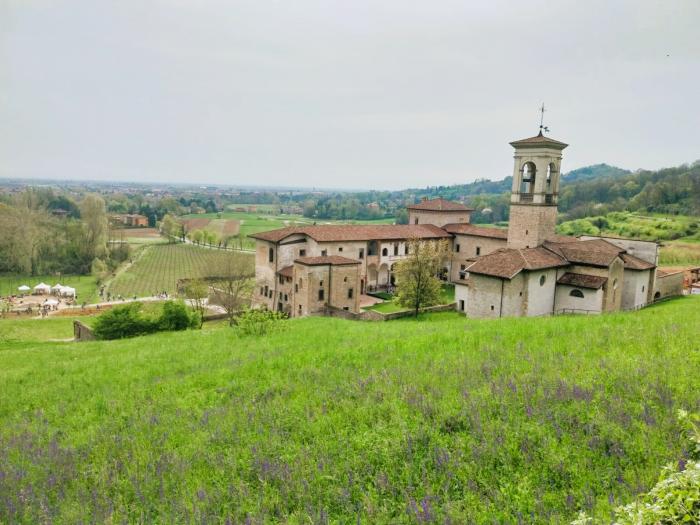
The PhD Course in Landscape Studies for Global and Local Challenges (Studi sul paesaggio tra sfide globali e locali / Études sur le paysage entre défis globaux et locaux) is a third-level interdisciplinary and multilingual (Italian, English, French) program that addresses theoretical, methodological and applied studies of the landscape from different disciplinary perspectives.
The Course provides high-education contents to research in landscape studies, whereby landscape is understood as cultural heritage of Humanity, as declared by UNESCO, intersecting the global challenges and local dynamics that innervate territories and intertwining research topics related to urban regeneration, collaborative and adaptive design, the enhancement of material and intangible historical heritage, cartographic and transmedia imagery, narratives and counter-narratives of space, ecological and digital transition, sustainable tourism and geopolitical relationships in the world-system.
The educational project is developed by means of a transversal path, focused on disciplines such as geography and urban planning, as well as on historical, artistic, linguistic and cultural studies, with the aim, on the one hand, to strengthen socio-territorial mediation skills between institutions, private actors and civil society and, on the other, to encourage experimentation with innovative approaches to transdisciplinary research on world imagination and landscape co-design.
The PhD Faculty consists of specialists from the Departments of Foreign Languages, Literature and Cultures, Engineering and Applied Sciences, and Letters, Philosophy, Communication, in collaboration with professors from other Departments of the University of Bergamo and with scholars from the National Research Council (CNR).
The educational path is strongly characterized by interdisciplinarity and internationalization, including field research as well as extended research stays abroad, at institutions that specialize on the topics of PhD students. In addition to following recommended courses and seminars, PhD students will conduct research work, developing a thesis under the guidance of a supervisor belonging to one of the affiliated universities and with the support of other members of the Faculty.
Duration: three years.
Employment opportunities: the PhD Course aims to train high-profile professional figures, whose multidisciplinary skills are expendable in the academic context, as well as in public and private bodies within strategic roles aimed at directing policies, projects and territorial, geopolitical and environmental actions in compliance with international principles of sustainability. These figures belong to highly specialized intellectual and scientific professions, such as general management, public administration and political, cultural and museum organisations of national and supranational interest, and can be placed both in research institutions and in public institutions, in professional firms, in private companies, in diplomatic bodies dedicated to territorial analysis, urban regeneration, landscape, tourism and museum enhancement, and geopolitical strategy. Incorporating social, historical, cultural, aesthetic, artistic, legal, political and economic analysis skills, this framework of action sees the acquisition of co-design skills within governance processes as a central issue.
In this perspective, the PhD Course:
- starting with the establishment of an Advisory Board, is open to collaboration with public institutions, private companies, diplomatic bodies and representatives of civil society acting in specific local contexts in response to global challenges; as well as - through its International Academic Steering Committee - with other Italian and foreign universities and research bodies studying the landscape, thus explicating the role of university as an ‘orchestrator’ of political and territorial innovation and guarantor of spatial justice
- strengthens the awareness of inhabitants with respect to their values and local knowledge, experimenting with collaborative didactic-scientific forms that may support dialogue with the institutions, private companies and the world of associations in the green and digital transition
- facilitates the promotion of cultural, social, territorial, political, economical historical diversity amongst landscapes, also through the use of ICTs and cartographic, visual, transmedia and digital communication
- develops skills related to dialogue and mediation amongst institutional actors, stockholders and stakeholders, supporting strategic social inclusion policies through the use of complex communication systems